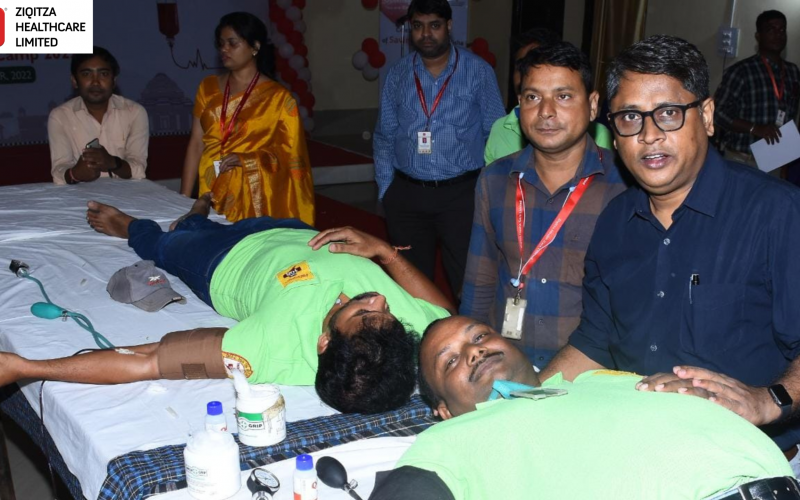India has been more prone to transmittable infections, which requests the inflow of the imperative liquid consistently. In any case, a worldwide report distributed in the Leading medical research journal publication of in October 2019 evaluations that India has the biggest outright lack of blood units among all nations on the planet. The review uncovers a stunning lack of very nearly 41 million units in 2017. This current lack is exacerbated by the way that very nearly 10-11% of gathered blood is squandered every year in the country. This implies India has aggregately squandered over 3.4 million blood units from 2014 to 2017!
There are Over 8 lakh registered blood donors exist in India. People don’t have access to enough blood because the demand for it is approximately equal to the supply.
Donations of blood are required. This is because it’s the only method to get blood transfusions that can save your life. Blood transfusions can both prevent and treat a variety of diseases, as well as both cure and treat many of them. Unfortunately, not everyone is aware of the recommended annual blood donation amount, despite the fact that many people donate blood each year.
Giving blood is an excellent method to assist those in need. Blood donation can be used to treat a variety of disorders.
1. For Cancer patients, blood bondings can go about as an asset to execute platelets back into the body after weighty therapies, for example, chemo or radiation treatment.
For disease patients, platelets that are made in the bone marrow are frequently in danger. This absence of platelet creation can cause persistent sicknesses after some time which might influence organs like the kidneys, spleen and liver.
2 In general, signs for bonding in HIV-positive patients are equivalent to for HIV-negative patients. HIV-positive patients may, notwithstanding, have compromised bone marrow capability and need extra hematological help until such time that Craftsmanship brings about superior bone marrow capability.
It has aided in the treatment of numerous heart conditions like high triglyceride, blood pressure, and cholesterol levels. A person who does not routinely consume milk can still benefit from blood donation because it will aid in the treatment of anemia. Diabetes mellitus, which is brought on by a shortage of insulin in the body, can also be treated with the use of this.
There are around 2.5 million persons in India who can donate blood. This amount is much less than the approximate 11 million people who would need blood. Fear of needles is the most prevalent excuse given for not giving.
Blood donations can benefit those who have certain life-threatening illnesses. For instance, if you have cancer and require a transfusion, you might be able to acquire one from a donor who has already given blood. You must schedule an appointment with your neighborhood blood bank and present documentation of your HIV/AIDS and other disease testing before you may donate.
For quality, security, and viability of endlessly blood products, exceptional blood communities with sufficient framework and prepared labor is a fundamental prerequisite. Be that as it may, there is a sizable lack of prepared medical services experts in the field of bonding medication all through the country.
The Ministry of Health and Family Welfare had long before formulated a National Blood Policy with a mean to guarantee effectively open and sufficient stockpile of protected and quality endlessly blood parts obtained from a willful non-compensated standard blood contributor in exceptional premises, which is liberated from bonding communicated contamination and is put away and moved under ideal circumstances.
Author: Sejal Rebello


